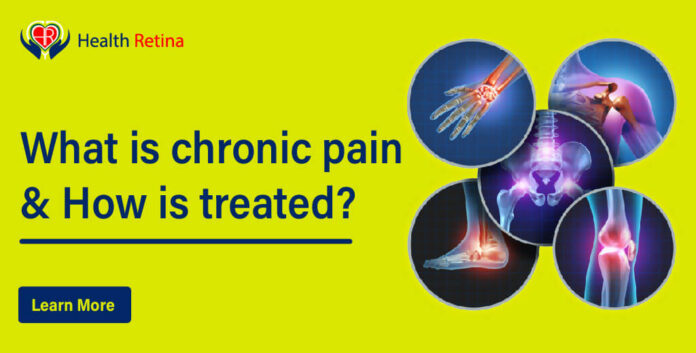What is Pain?
Pain begins in receptor nerve cells tracked down underneath the skin and in organs all through the body. At the point when you are debilitated, harmed, or have other kinds of issues, these receptor cells send messages along nerve pathways to the spinal string, which then, at that point, conveys the message to the cerebrum. Pain medication diminishes or impedes these messages before they arrive in the brain.
What is chronic pain?
chronic pain is long-standing pain that endures beyond the standard recuperation period or happens alongside a persistent medical issue, like joint pain. chronic torment might be “on” and “off” or nonstop. It might influence individuals to the point that they can’t work, eat as expected, partake in active work, or enjoy life.
Chronic pain is pain that goes on for over three months. The chronic torment can be there constantly. That is to say, it can happen everywhere in your body.
What causes chronic pain?
Sometimes chronic torment can start with next to no conspicuous reason. Be that as it may, it starts after an injury, after a physical issue, or due to a medical issue. Some of the main sources include:
- Past wounds or medical procedures
- Back issues
- Headaches and different migraines
- Joint inflammation
- Nerve harm
- Diseases
- Fibromyalgia is a condition where individuals feel muscle torment all through their bodies.
Symptoms
Chronic pain can go from gentle to serious. It can continue day by day or come and go. The pain can feel like:
- A dull throb
- Throbbing
- Consuming
- Shooting
- Crushing
- Stinging
- Touchiness
- Firmness
Can lifestyle changes help with the relief of chronic torment?
Four significant way-of-life elements can influence your chronic torment and assist with limiting it. Medical care suppliers sometimes call them the four mainstays of chronic pain. such as:
Stress: Stress can play a significant part in chronic pain, so it’s important a lot to attempt to decrease your stress however much as could be possible. Everybody has various methods for dealing with their stress, but a few strategies incorporate meditation, mindfulness, and deep breathing. Above all, attempt various options until you find what turns out best for you.
Exercise: Partaking in low-power exercises, like strolling or light swimming, for 30 minutes consistently may assist with lessening your pain. Exercise can likewise be a stress reliever for certain individuals, which is vital to oversee when you have chronic pain.
Diet: It’s essential to eat a healthy diet to support your general well-being. Your medical services supplier might propose attempting an anti-inflammatory diet by dispensing with food varieties that cause aggravation, like red meat and refined carbohydrates.
Sleep: Getting sufficient quality Sleep is significant for your general well-being. An absence of Sleep can make you put on weight, which could exacerbate your chronic pain. Moreover, getting quality sleep is additionally significant for stress management.
Make sure to discuss these four lifestyle support points with your medical services provider to decide how each applies to your type of chronic pain and how you can integrate changes into your everyday life.
How is chronic pain treated?
To assuage chronic pain, medical care suppliers first attempt to recognize and treat the reason. But, sometimes they can’t track or find the source. Assuming this is the case, they go to treating or managing, the pain.
Moreover, medical service suppliers treat chronic torment in various ways. The methodology relies upon many elements, including:
- The type of pain you have.
- The reason for your pain, if known.
- Your age and overall well-being.
- The best treatment plans utilize a variety of procedures, including meds, way-of-life changes, and therapies.
What meds can treat chronic torment?
Your medical care supplier might prescribe specific meds to ease chronic pain, including:
- Anticonvulsants (meds that forestall seizures) for nerve torment.
- Antidepressants like tricyclic antidepressants.
- Muscle relaxers.
- Nonsteroidal mitigating drugs (NSAIDs) or acetaminophen.
- Effective items (applied to the skin) that contain painkillers or fixings that make mitigating intensity or cold.




